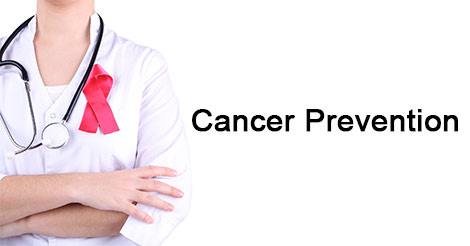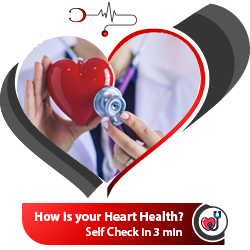Cancer Prevention
Cancer prevention is the measures taken to lower or limit the possibilities of getting cancer.
Many things in our lifestyle, genes and environment around us affect our risk of getting cancer.

Researchers are studying different ways to prevent cancer, which include the following:
- Ways to avoid things/factors known to cause cancer
- Changes in lifestyle and diet
- Detecting precancerous conditions early
- Medicines to treat a precancerous condition or to keep cancer from occurring
Keep Away from Carcinogens
Any substance or agent known to increase the probability of getting cancer is called a carcinogen. Some known and established carcinogens can be
- Cigarette smoking or tobacco use in any form
- Infections - Human papilloma virus, Hepatitis B & C viruses, Human T-cell leukaemia virus, Epstein-Barr virus, Kaposi sarcoma virus etc
- Radiation - UV rays of sun, radon gas and man-made radiation such as X-rays
- Immunosuppressive medicines
- Car exhaust fumes
- Asbestos, some chemicals found in paints
Modify Lifestyle
Ways of living and habits which may affect the risk incidence of cancer could be
- Diet - Red and processed meat, food additives, salty & pickled foods
- Alcohol - Over indulgence in alcoholic drinks
- Physical Activity - Obesity due to physical inactivity and lethargy
- Environmental Risk Factors
Go for Cancer Screening
Detecting the cancer in precancerous stage or in its early stages can lead to a much better prognosis of the disease due to effective treatment and management.
There are various kinds of screening tests.
- Physical exam and history: A visual examination of the whole body to check general health and disease, like any new growth or lumps. A medical history of patient’s present health status, past illnesses and treatments will also be noted.
- Laboratory screening tests: Samples of urine, tissue or other substances in the body are taken; like Pap smear for cervical cancer, a biopsy from an abnormal growth or stool test for occult blood in colon cancers.
- Diagnostic procedures: Sigmoidoscopy or colonoscopy for colon cancer
- Imaging procedures: Screening procedures that take pictures of inside of the body like ultrasound, X-ray, CT scan or MRI.
- Genetic tests: Tests that look for gene mutations (changes) that could be linked to certain cancer. It is also known as gene testing or genome testing.
Explore Cancer Chemoprevention
Cancer chemoprevention is the use of natural or synthetic substances to reverse, suppress or prevent the development of cancer at the first place.
It is used by people who are at a higher risk of developing cancer, have a family history of cancer or those with a previous cancer.
Chemoprevention is not used to treat cancer but can lower the risk of cancer or slows down its development.









